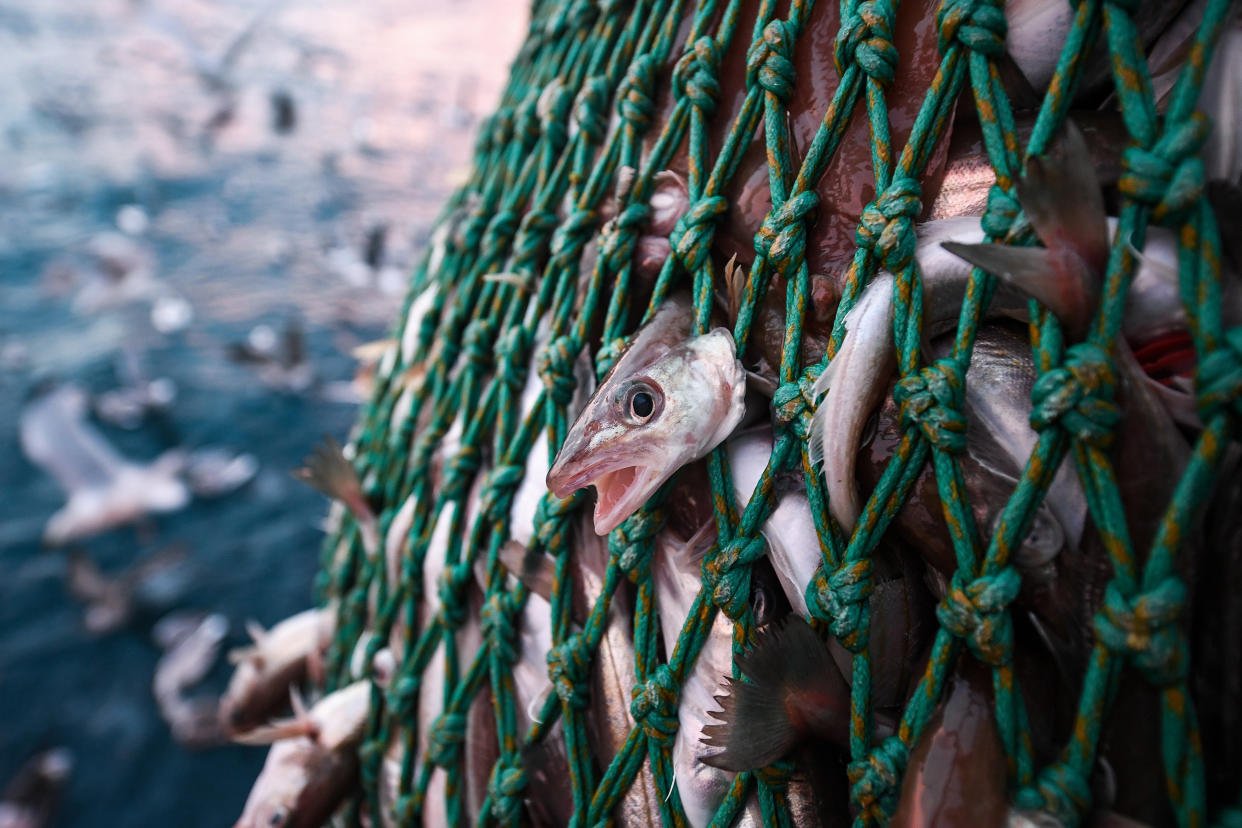Climate Change Takes A Bite Out Of Global Fisheries, Study Finds

Warming of the world’s oceans has already had significant impacts on a number fisheries around the globe, triggering population losses as high as 35 percent in some regions.
That’s the finding of a first-of-its-kind study, published Thursday in the peer-reviewed journal Science, that used historical fish stock data and temperature maps to measure the effect of warming waters on 235 populations of fish and shellfish between 1930 and 2010. The team of six researchers estimates that ocean warming over that period led to an estimated 4.1 percent decline in the amount of fish that can be sustainably caught, from 35.2 million metric tons in the 1930s to 33.8 million metric tons in the 2000s.
“We were really surprised to see that warming has had a really important impact already,” Chris Free, the study’s lead author and a post-doctoral ecologist at the University of California, Santa Barbara, told HuffPost.
Nineteen fish populations experienced negative population growth rates due to climate-induced ocean warming, whereas nine actually benefitted from the changing conditions. The populations studied represent more than 120 species and roughly a third of the reported global catch.
Areas hardest hit by rising ocean temperatures include the North Sea, located northeast of the United Kingdom, as well as the East China Sea and the Sea of Japan. Estimated losses in those areas ranged between 15 and 35 percent.
“The North Sea supports really important commercial fisheries. And those East Asian ecosystems are home to some of the fastest-growing human populations and populations that depend heavily on seafood,” Free said. “These impacts are really a big deal.”
Overfishing has only exacerbated the problem, making fish populations less resilient to climate change, according to the findings. Furthermore, the study notes that “climate change will likely hinder efforts to rebuild overfished populations.”
Free called overfishing a “one-two punch” for heat-stressed fisheries. Eliminating overfishing and accounting for climate change in fisheries management decisions will be key to building resilience in a world where people are increasingly relying on fish as a source of food, he said.
Approximately a third of the world’s oceans are overfished, according to the United Nations.
The new study, led by scientists at Rutgers University, is the first to quantify the historical impact of ocean warming on global fish populations, according to Free, who earned his doctorate from the school.
The average global temperature on Earth has risen by about 0.8 degrees Celsius, or 1.4 degrees Fahrenheit, since 1880. A dire United Nations report released last October warned that if humans continue to pump greenhouse gases into the atmosphere at the current rate, global warming will likely hit the 1.5 degrees Celsius mark sometime between 2030 and 2052, leading to an estimated $54 trillion in damages. And an analysis early this year found that oceans are warming up to 40 percent faster than previously thought, as The New York Time reported.
Many of the species that have so far benefitted could soon be in trouble, warned Olaf Jensen, a study co-author and associate professor in Rutgers’ Department of Marine and Coastal Sciences.
“Fish populations can only tolerate so much warming,” he said in a statement.
CORRECTION: A previous version of this story misstated the location of the North Sea as northwest of England.
Love HuffPost? Become a founding member of HuffPost Plus today.
This article originally appeared on HuffPost.

